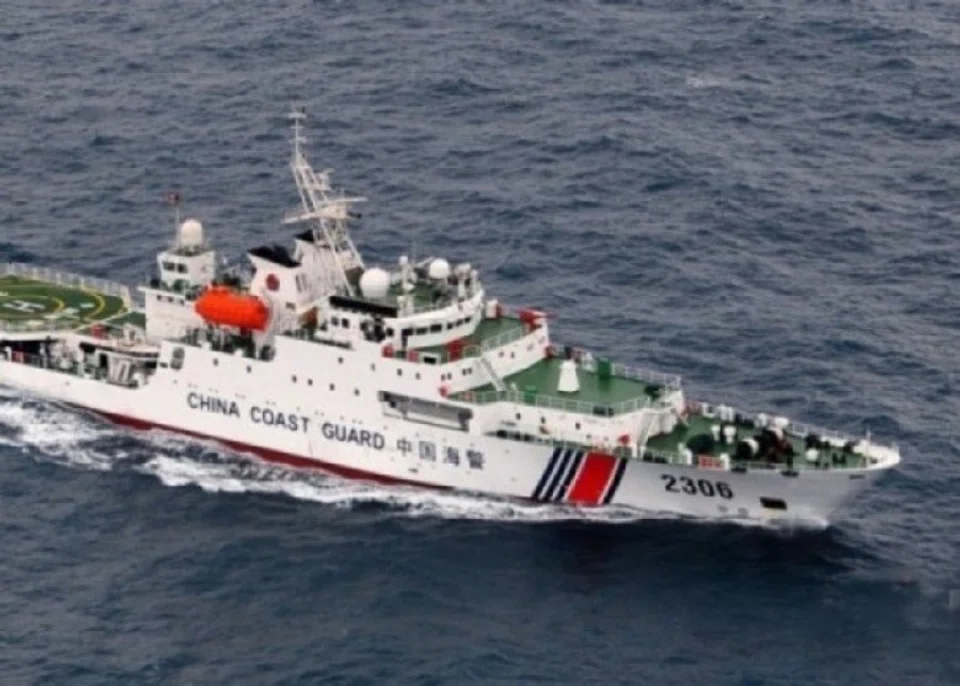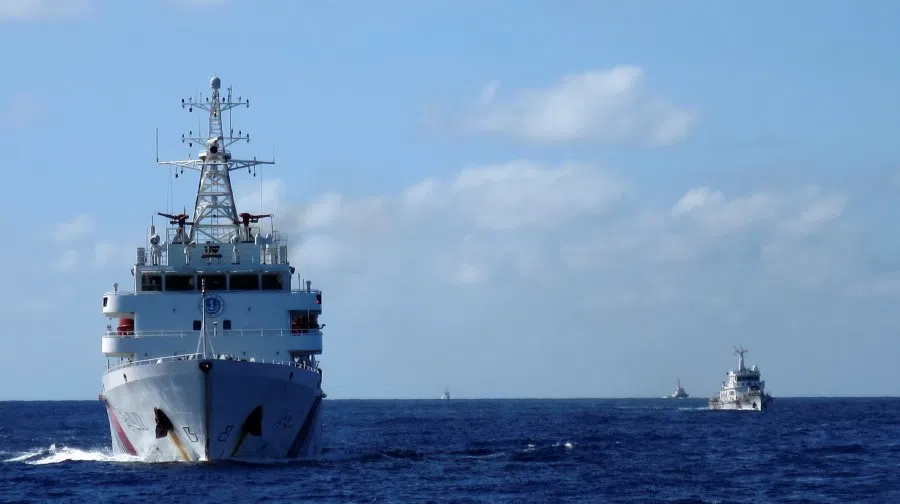Japanese academic: China's new coast guard law could damage relations with neighbours
China's new law gives its coast guard greater powers in the South China Sea. However, is this in line with international law and expectations? Japanese academic Shin Kawashima explores the issue.

On 22 January 2021, the Coast Guard Law of the People's Republic of China was promulgated after passing the 25th session of the Standing Committee of the 13th National People's Congress (NPC). The law was to come into force on 1 February 2021, an unusually short timeframe. How are we to understand the nature and significance of this law that the Chinese government has rushed to promulgate and enforce?
The new coast guard law sets forth the duties and obligations of the coast guard forces consisting of the Chinese People's Armed Police Force and the Coast Guard Corps. The scope of application of this law is the waters under the jurisdiction of the People's Republic of China and the airspace above those waters. Jurisdictional waters refer to the inland sea, territorial waters, contiguous zones, continental shelves, and exclusive economic zone (EEZ). This area, which includes the EEZ and continental shelves, extends over a vast area covering the East China Sea and South China Sea.
How would the new law prescribe the actions of the coast guard forces in these waters? There is a difference between the final provisions and the draft. The terms used in the final provisions are more moderate than that in the draft. The more moderate expressions appear to have left more room for interpretation as to the authority and remit of the coast guard forces. The following is the content of the draft.
Firstly, Article 12 of the law states that the remit of the coast guard forces is to "patrol, take precautionary measures, and guard key islands and reefs". While it is unclear what key islands and reefs refer to, the authority to decide which are important undoubtedly lies with China. Secondly, it is to "manage and protect maritime boundaries, and prevent, stop, and eliminate acts that endanger national sovereignty, security, and maritime rights and interests". The "maritime boundaries" were never clearly delineated, so saying that it will protect "maritime boundaries" established by China leaves the possibility open for China to establish a wider area should it decide to do so.
In addition to maritime safety, security, and smuggling, Article 12 encompasses the supervisory inspection of the protection of islands and reefs, the development and utilisation of uninhabited islands, the exploration and development of marine mineral resources, the laying and protection of submarine cables, oceanographic surveys, and marine surveying and mapping, clamping down on violations. Also under its jurisdiction are the marine environment and nature conservation. Fisheries are partially included in that jurisdiction. However, the scope of jurisdiction for fisheries is problematic since, in the case of bottom trawl fisheries by motorised fishing boats, it extends to waters outside the line of closed fishing areas. In such scenarios, foreign fishing vessels in Chinese-claimed waters could be considered to be under Chinese control.
Article 18 grants broad powers to coast guard personnel to board and inspect foreign vessels. This appears to allow for "coercion", to wit, the use of weapons.

The law is also aimed at foreign vessels. In terms of the issue of how to deal with foreign ships that trespass in territorial waters, Article 18 and Article 20 are of particular interest. Article 18 grants broad powers to coast guard personnel to board and inspect foreign vessels. This appears to allow for "coercion", to wit, the use of weapons. If this were to be applied beyond territorial waters to the much wider area mentioned above, it would cause major problems with neighbouring countries.
Furthermore, Article 20 states that China may remove any building or structure, or a fixed or floating device placed on islands deemed by China to occupy its own jurisdictional space. And Article 21 states that measures including the use of weapons may be taken if a foreign military vessel or non-commercial vessel violates any law or regulation of China in Chinese-claimed waters. While this article may not appear to be uncommon, in terms of the extent of the notion of waters under the jurisdiction of China, it has significance for other countries in the region.
There are limitations to the authority that the countries concerned can exert over contiguous zones, continental shelves, the EEZ, and so forth. However, the new coast guard law does not necessarily take into account the limitations of such authority, seemingly considering this to extend to the entire waters under its jurisdiction in roughly equal measure. While it may be restrained in administrative instructions and in actual application, the provisions of the new coast guard law at least give rise to this concern.
The notion of "blue state territory" exists in China. According to this notion, the sea is "territory", just like land. Such a notion may well be valid in respect of territorial waters and airspace. However, it should not apply to contiguous zones, EEZ, and continental shelves. The new coast guard law may be a domestic law, but it governs the actions of the coast guard forces, which will affect China's relationship with its neighbours.
Editor's Note:
On 3 February 2021, Japan conveyed its "strong concerns" to Beijing over the law. Chief Cabinet Secretary Katsunobu Kato said at a news conference that China must not use the legislation in a way that goes against international law. According to the Japan Coast Guard, two China Coast Guard vessels entered the waters around Senkaku islands ('Diaoyu islands' to the Chinese) on 6 February, approaching two Japanese fishing boats, and were asked by the Japan Coast Guard to leave. The Japan Coast Guard reported a similar incident on 7 Feb.





